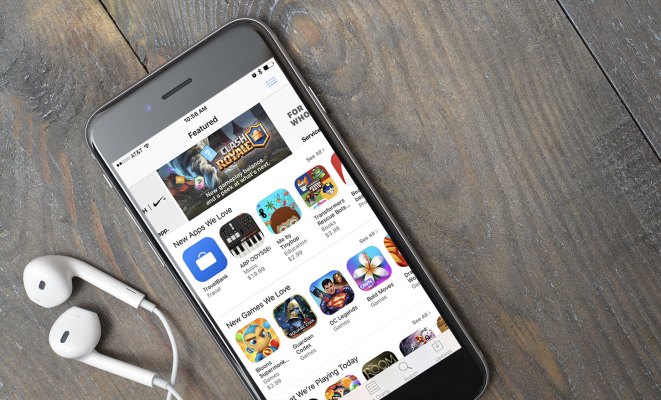Apple’s SVP of Worldwide Marketing Phil Schiller announced today that the App Store had hit a new milestone. According to a statement he posted to Twitter, the App Store had a record-breaking month in terms of sales this November. Sales and download numbers were not provided, however, which makes it more difficult to put this announcement into perspective compared with prior milestones.
To ballpark it, Apple said in January that it had a record-breaking 2015 holiday season for its App Store, with over $1.1 billion spent on apps and in-app purchases over the two-week period ending on January 3rd. But because that stretches over December and January, it’s not a direct comparison.
December, of course, is typically a top sales period for the App Store, as many people receive iPhones and other Apple devices as gifts, and then proceed to load them up with new content. But this year, the new iPhones are already selling well. And with the highly anticipated Nintendo game, Super Mario Run, hitting next month on December 15th for the steeper-than-usual price of $9.99 USD for the fully unlocked version, Apple is likely on track to top this November record at the end of the 2016 holidays, as well.
Beyond it being a busy season in general for the App Store, another thing that could have led to November 2016’s record numbers is the increasing importance of China to the App Store’s bottom line. (Note that Schiller’s tweet didn’t refer to “U.S.” App Store revenue.)
In October, app intelligence firm App Annie noted that China overtook the U.S. in App Store revenue for the first time, pulling in over $1.7 billion in Q3 2016, putting it ahead of the U.S. by 15+ percent. Presumably, that revenue growth trend continued into November, impacting App Store sales.
Schiller’s tweet itself was a bit self-congratulatory, given that the exec took over the App Store a year ago, and has then proceeded to implement a number of changes, including the addition of Search ads, a new business model for subscriptions, faster app review times and more frequent refreshes of App Store content, and other improvements to app discovery.
The revamp has also included a purge of outdated applications, which saw over 47,000 apps pulled from the storefront in October. (Those numbers have since returned to more normal levels, with around 13,000 apps removed in November.) What’s interesting is that by removing the cruft from the App Store, it could have actually made it easier for people to find those that were worth downloading and buying.
Update: According to third-party app intelligence firm Sensor Tower, the App Store saw $1.74 billion in net revenue for November worldwide ($2.49 billion gross), compared with $1.71 billion net in October.
